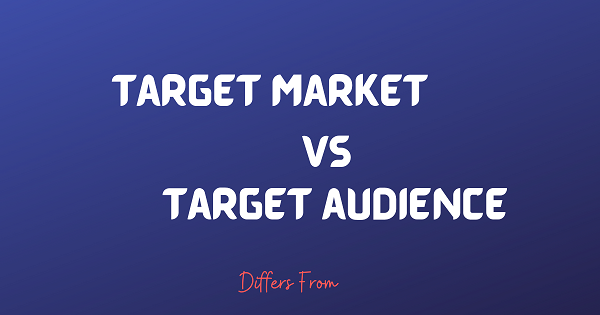There are critical differences between target market and target audience. A target market is a specific group of consumers a business wants to reach with its products or services. A target audience is the actual group of people who see or hear a particular advertisement.
Businesses usually have a target market in mind when they create a product or service. They then use marketing techniques to reach that target market. The target audience is the people who are exposed to the marketing message.
Not all target market members will be part of the target audience. For example, a business that sells baby clothes may have a target market of parents with young children. But the target audience for its advertising might be pregnant women since they are the ones who are actually in the market for baby clothes.
What is a Target Market?
A target market is a group of consumers who share everyday needs or characteristics that a company intends to serve. A business must understand its target market to reach and sell to them effectively. Defining a target market includes identifying and segmenting consumers by age, location, gender, income, and interests. Once a target market is identified, a company can develop marketing strategies and messages that appeal to that group.
How to Identify a Target Market?
Businesses must first identify their product or service to identify a target market. They then must consider who would most likely use or benefit from their product or service. Once they have considered these factors, they can narrow down their target market by identifying demographics such as age, gender, location, and income. By doing this, businesses can create a marketing strategy that is more likely to reach their target market and result in sales.
Why Should You Identify Your Target Market?
A company’s target market is the specific group of consumers the business has decided to aim its marketing efforts and, ultimately, its merchandise. A company needs to identify its target market for several reasons. Perhaps most importantly, by targeting a specific market, the company can more effectively allocate its resources and better tailor its marketing message to appeal to consumers in that group. Additionally, targeting a market can help a company better understand its potential customers’ needs and wants and what they are looking for in a product. Ultimately, by understanding and targeting a specific market, a company can more effectively sell its products and reach its business goals.
What is a Target Audience?
A target audience is a specific group of consumers within a larger market for a product or service on which a company has decided to concentrate its efforts. Specific demographics like age, gender, location, and interests usually define this group. Identifying and understanding the needs of your target audience is essential to developing marketing strategies that will effectively reach them. Knowing your target audience and what they want from your product or service will help you create messaging that resonates and ultimately drives conversions.
How to Identify a Target Audience?
To identify a target audience, businesses should consider the needs and wants of their potential customers. They can do this by conducting market research, such as surveys and focus groups, to learn about the demographics of their audience and what they are looking for in identifying the target audience. Additionally, businesses can look at their past customer data to see who has been most responsive to their product or service. Once a target audience is identified, companies can create marketing and advertising campaigns tailored to them.
How Relevant is Target Audience to Your Strategy?
To create an effective marketing strategy, it is essential to consider your target audience. This includes taking into account their needs, wants, and interests. It would be best to consider what you want to achieve with your marketing campaign. By understanding your target audience, you will be able to create a strategy that is more likely to be successful.
Target Market vs. Target Audience: What’s the Key Difference?
When it comes to your marketing strategy, it’s essential to understand the difference between your target market and your target audience. Your target market is the group of people that are most likely to buy your product or service. Your target audience is the group of people that you want to reach with your marketing message.
The critical difference between these two groups is that demographics like age, gender, location, and income define your target market. Your target audience is determined by their interests, needs, and desires.
Knowing the difference between your target market and the audience will help create a more effective marketing strategy. You can use this information to create targeted marketing campaigns that speak directly to your audience’s needs and interests. This will help you attract more leads and convert more sales.
Difference between Target Market and Target Audience
| Particulars | Target Audience | Target Market |
| Definition | A specific collection of people that a company thinks might buy a particular product. | An entire group of people a company wants to purchase its products. |
| Size | Smaller is size | Larger in size |
| Likelihood of sale | Most likely to buy | Need persuasion to buy |
| Campaign | Advertising | Marketing |
| Message | More personal | Broad |
Is Market Segmentation Different from the Target Market and Audience?
Yes, market segmentation is different from the target market and audience. A target market is a specific group of consumers a company wants to reach with its products or services. The target audience is the group of people who will see or hear the company’s marketing message. Market segmentation is the process of dividing the target market into smaller groups based on specific characteristics.
When should a business establish a target audience?
When a business establishes a target market, it signifies that it understands the audience it is trying to reach. This understanding can be gleaned from surveys or other research that the business has conducted to understand its target audience better. Establishing a target market allows the company to focus on providing products and services specifically tailored to that audience rather than those that are more general. This increased specificity can lead to better sales and more customer loyalty. When the target market is established, it can be used to assist in improving customer service. A business can survey its customers to determine their specific needs and wants and then craft a product or service that meets those needs.

